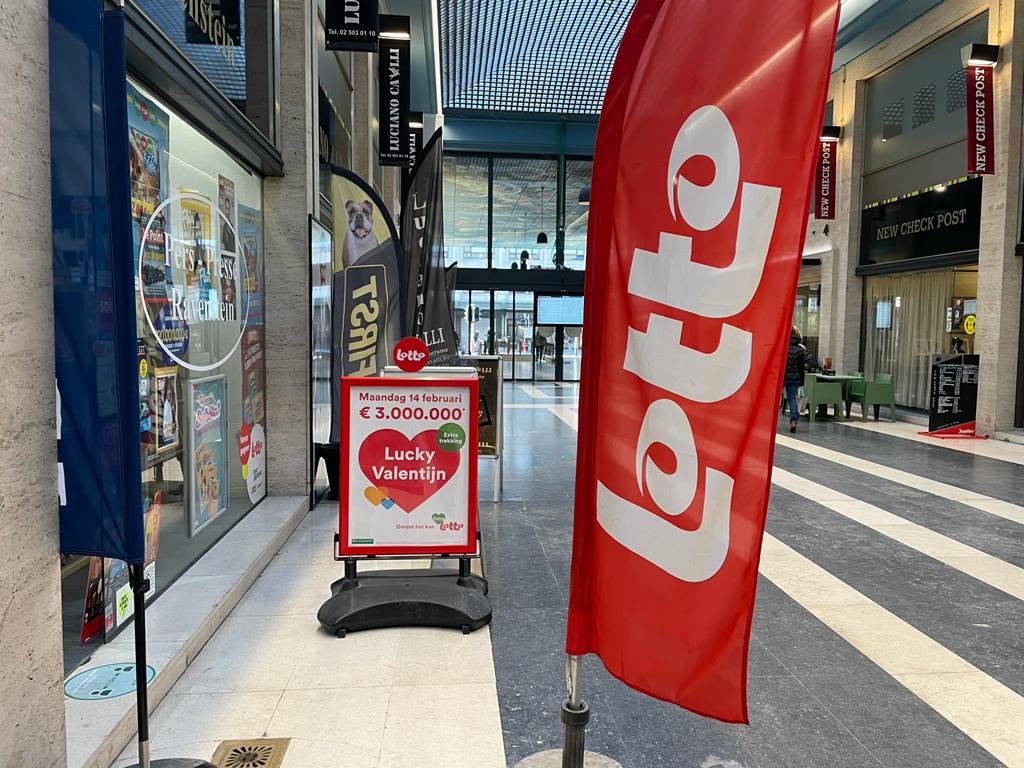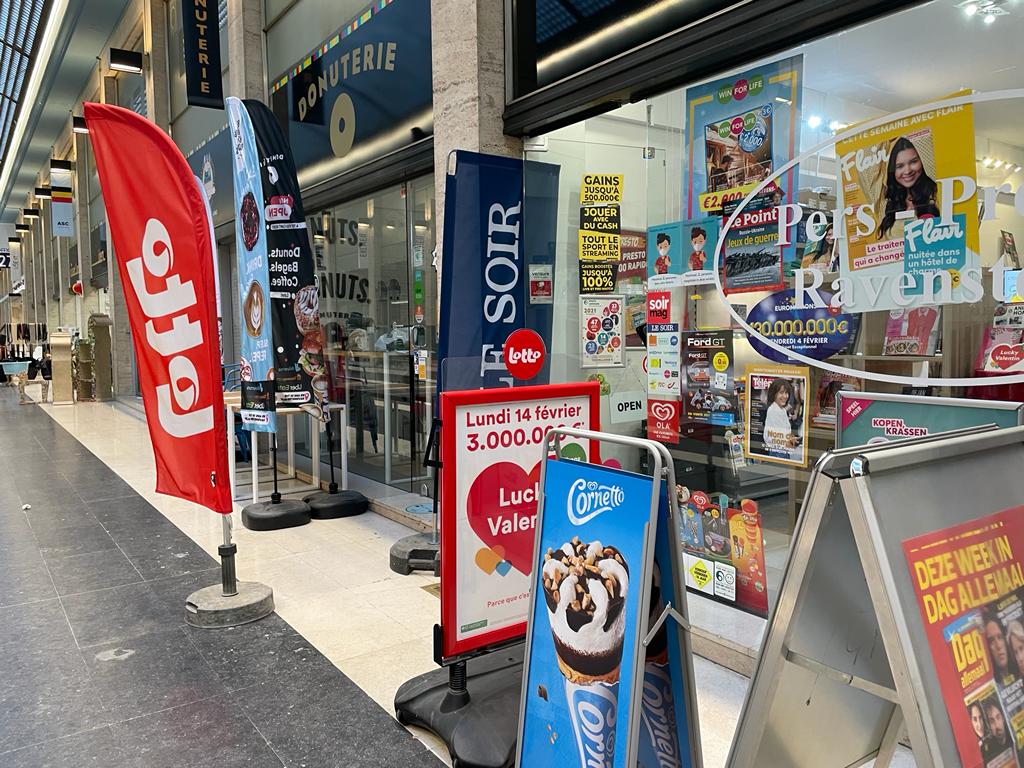Belgium’s Deputy Prime Minister and Minister of Justice Vincent Van Quickenborne will be implementing limits for gambling in newspaper shops following postal company bpost’s heavily-criticised sale of its retail network to gambling company Golden Palace.
That purchase “points to the need for stricter restrictions,” the Minister said in a press release, adding that they’ve seen a “worrying increase in gambling in newspaper shops” in recent years.
Newspaper shops in Belgium can take sports bets and host slot machines, which critics say opens a backdoor to addiction by giving players who have been banned from casinos an alternate venue, and exposes minors to gambling.
“The fact that newsagents are allowed to take bets as side revenue is being abused as a loophole,” Van Quickenborne said. “There are newsagents where more than €4 million is wagered every year. These are shocking amounts.”
‘Sham’ newspaper shops
Van Quickenborne said that many newspaper stores are actually “sham” operations, using “a newspaper rack with a few old newspapers as a camouflage for a hidden gambling palace.”
New legislation would make it so that only legitimate newspaper shops that offer and sell a sufficient number of newspapers and magazines are allowed to have gambling as a secondary activity.
“We are also imposing restrictions so that this sideline activity remains within limits,” said Van Quickenborne.
Related News
- Backdoor to addiction: Concerns raised over bpost's sale of retail stores to gambling company
- Bpost sells Press Shop and Relay chains to gambling company
- Belgian firm claims AI gambling addiction breakthrough
“One fifth of the turnover may come from gambling, one fifth from advertising and one fifth from the shop space. No more. This is the end of the newsagent as a backdoor to the gambling industry.”
The new rules were created in consultation with legitimate newsagents, who Van Quickenborne says are tired of unfair competition from the sham shops.
A ‘worrying increase’ in gambling in Belgium
“The number of gambling addictions is increasing rapidly. Just like other addictions, it ruins people and their families. And we see that more and more young people are starting to gamble,” Van Quickenborne said.
Newspaper shops make gambling easily accessible, including for minors and young people. Around 42% of 18 to 25-year-olds reported that they tried gambling for the first time during the pandemic, according to Van Quickenborne’s office.
“Young people can buy a newspaper or a sweet, but the other sweets in the [newspaper shop] are the slot machines,” an ex-gambling addict testified. “Then the temptation is great to take a gamble out of interest and curiosity.”
Newspaper shops were first allowed to take bets for sideline revenue back in 2010, a decision made largely in response to falling sales as a result of the digitisation of news media.
But the owners of such establishments continue to struggle with falling revenue, especially considering a decrease in sales of another staple product: cigarettes.
Profit margins have also thinned over the years, meaning shop owners make less money off the same products they’ve been selling for years. One owner said that lottery products and gambling are the only reason his shop is still in business at all.
New rules for newspaper shops
In order to be allowed to continue offering gambling products, a newspaper shop must offer at least 200 different current titles of newspapers and magazines, and the turnover from the sale of non-lottery products must be at least €25,000 on an annual basis, a figure set in consultation with the professional associations of newsagents, 87% of which already meet this requirement.
Bets can only be placed between 06:00 and 20:00, a maximum of €200 per day is allowed, and the stakes that a newspaper trader may take annually will be restricted to a maximum of €250,000. Figures from the Gaming Commission show that 17% of all licensed newspaper shops take more than this maximum amount in bets on an annual basis.

A newspaper shop in Brussels advertises Lotto products. Photo by Helen Lyons/The Brussels Times
In the future, this will no longer be possible: the gambling devices will have to be switched off when newspaper shops exceed the €250,000 limit.
Turnover from the taking of bets will be reduced from a maximum 49% of the total revenue, to 20%. That turnover does not refer to the amounts from gambling bets, but to the commissions and other direct and indirect revenues from betting.
While it was already a rule that shops could only have four “terminals where bets can be taken,” this referred only to slot machines and not the computer system on the till, which resulted in an essentially unlimited number of gambling products being available.
From now on, all computer applications and devices together are now limited to a maximum number of four.
Lastly, a maximum of one fifth of the advertising displayed along the street side and in the shop space itself may be focused on betting, and the advertising of bets may take up a maximum area of 3 m² “to help make a clear distinction between a newsagent and a betting shop.” Gambling products may not take up more than one fifth of the total retail area.
The new rules will come into force on 5 March, although a transitional period is allowed for certain measures until 1 January 2023. Those who do not comply will be fined or even prosecuted.

